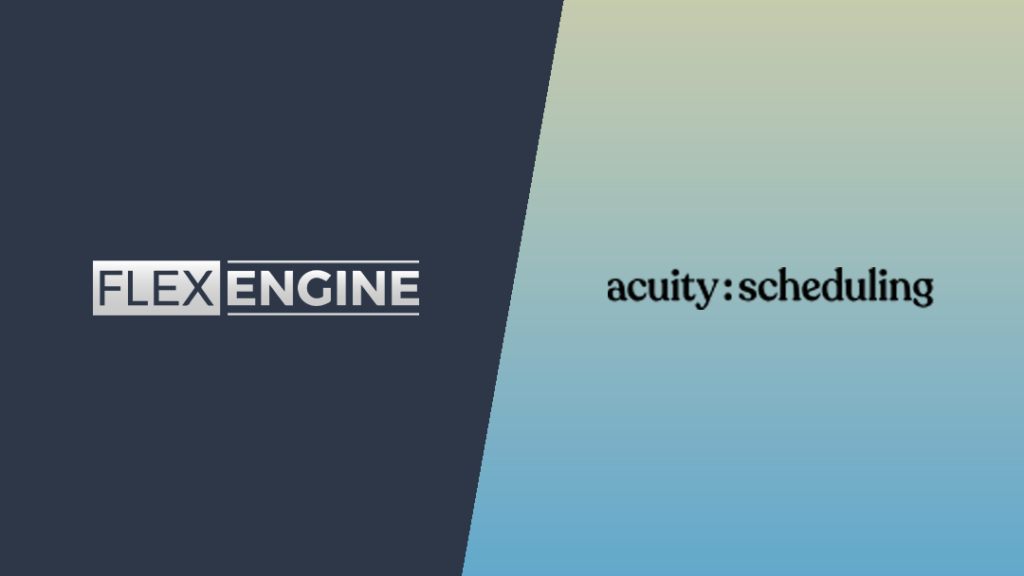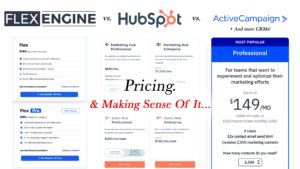Introduction: Flex Engine vs Acuity Scheduling
In the dynamic world of business operations, the efficiency of scheduling and coworking management software plays a pivotal role in the success of enterprises. Two noteworthy contenders in this arena, Flex Engine and Acuity Scheduling, have garnered attention for their distinct approaches to addressing the diverse needs of businesses. This essay aims to present an impartial comparison of these platforms, delving into their features and functionalities. By exploring the strengths of each, we endeavor to guide professionals and organizations towards an informed decision based on their specific requirements.
Flex Engine: Unveiling the Power of Versatility
Flex Engine emerges as a comprehensive scheduling solution, designed to offer a versatile array of features catering to the multifaceted needs of businesses. Positioned as an adaptive and user-friendly platform, Flex Engine aspires to simplify the scheduling process while accommodating the dynamic nature of modern business environments. Flex Engine, a revolutionary scheduling tool, aims to unleash the power of versatility for businesses across industries. In today’s fast-paced world, where adaptability and efficiency are paramount, Flex Engine offers unparalleled flexibility and ease of use. Its robust features empower businesses to meet the ever-changing demands of their customers, employees, and stakeholders.
One of the key strengths of Flex Engine lies in its ability to streamline scheduling processes. With its intuitive interface and automated functionalities, businesses can effortlessly create, edit, and manage schedules. This saves valuable time and reduces the risk of errors, allowing managers to focus on more strategic tasks. Flex Engine also offers real-time updates and notifications, ensuring that all stakeholders stay informed and connected.
What sets Flex Engine apart is its adaptability to the unpredictable nature of modern business environments. With its dynamic scheduling capabilities, businesses can easily accommodate last-minute changes, unexpected shifts, and varying demand patterns. Flex Engine helps businesses respond quickly to employee absences or sudden increases in customer demands.
With its user-friendly interface, real-time updates, and remarkable adaptability, this powerful tool enables businesses to thrive in today’s ever-evolving market. Embrace the power of versatility and unlock a world of possibilities with Flex Engine.
Key Features of Flex Engine:
Flex Engine boasts several key features that distinguish it in the competitive landscape:
- Adaptive Scheduling: Tailor their calendars dynamically based on ever-changing availability, ensuring efficient and responsive appointment booking.
- Team Collaboration: Facilitates team-based scheduling, fostering seamless coordination and collaboration among team members.
- Customizable Workflows and Integrations: Connecting effortlessly with various tools to enhance the scheduling process and overall workflow efficiency.
- Enterprise-Ready Features: Providing robust admin, security, and IT-oriented features. It is scalable and adaptable to the evolving needs of growing businesses.
Acuity Scheduling: Mastering Client Management Dynamics
As a Squarespace Company, Acuity Scheduling distinguishes itself by placing a strong emphasis on client management dynamics. Boasting a flexible scheduling software, Acuity Scheduling aims to simplify the scheduling process while prioritizing a delightful experience for both businesses and clients.
Key Features of Acuity Scheduling:
Acuity Scheduling positions itself as a robust scheduling and client management solution with the following key features:
- Controlled Availability: Allows for customized scheduling and the ability to block off personal time strategically.
- Automated Booking: Offers seamless management of multiple locations, automated receipts, and timely reminders throughout the scheduling process.
- Customer Engagement Tools: Acuity Scheduling prioritizes customer engagement by providing tools to grow customer bases and keep them engaged. Custom intake forms and loyalty tools contribute to a personalized and rewarding customer experience.
- Time Protection and Income Maximization: No-show protection tools and the ability to offer recurring subscriptions and gift cards. It helps protect users’ time and maximize their income.
Choosing the Ideal Solution: Flex Engine vs Acuity Scheduling
The choice between Flex Engine and Acuity Scheduling is contingent upon the specific needs and priorities of individual businesses. If adaptability, team collaboration, and enterprise-ready features are paramount, Flex Engine presents itself as a strong contender. Conversely, for those prioritizing controlled availability, automated booking, and customer engagement. When it comes to choosing the ideal solution for managing appointments and bookings, the options are endless. Two popular contenders in this space are Flex Engine and Acuity Scheduling. Each platform offers its own set of features and benefits, catering to different needs and preferences.
Flex Engine is often touted for its robustness and enterprise-ready features. It is a comprehensive solution that provides businesses with the tools they need to efficiently manage their scheduling and appointments. With features like resource allocation, advanced reporting, and integration capabilities, Flex Engine becomes an appealing choice for larger organizations with complex scheduling needs.
On the other hand, Acuity Scheduling excels in offering controlled availability, automated booking, and customer engagement features. This platform is known for its user-friendly interface and seamless integration with various calendar systems. It allows users to set up their availability, automate booking confirmations, and engage with clients through features like personalized email reminders and text notifications.
The decision between Flex Engine and Acuity Scheduling boils down to your specific requirements and priorities. If you value enterprise-level features and have a complex scheduling environment, Flex Engine may be the better fit. However, if you prioritize ease of use, automated systems, and customer engagement, Acuity Scheduling could be the ideal solution for your business. Take the time to evaluate your needs and weigh the pros and cons of each platform before making a decision.
Conclusion: Flex Engine vs Acuity Scheduling
In conclusion, the landscape of scheduling and coworking management software is enriched by the presence of Flex Engine and Acuity Scheduling. Both platforms bring unique strengths to the table, providing valuable tools for businesses seeking efficiency in their scheduling processes. As organizations navigate the intricate decision-making process, a thorough evaluation of their unique needs, team dynamics, and long-term goals will serve as the compass for selecting the most suitable platform. Whether it’s Flex Engine’s adaptability or Acuity Scheduling’s client-centric approach, both solutions contribute significantly to the evolving realm of efficient scheduling and coworking management software.





